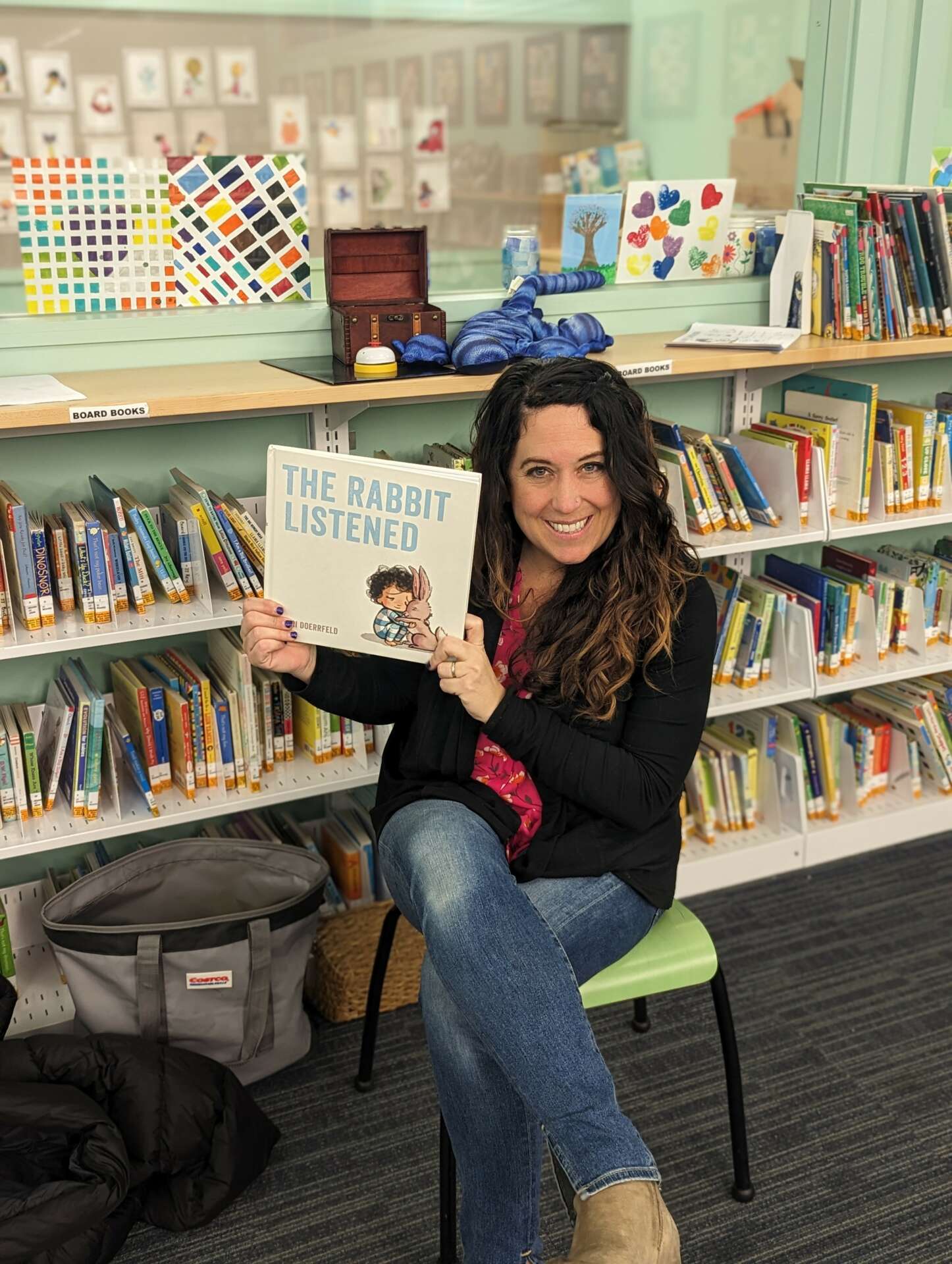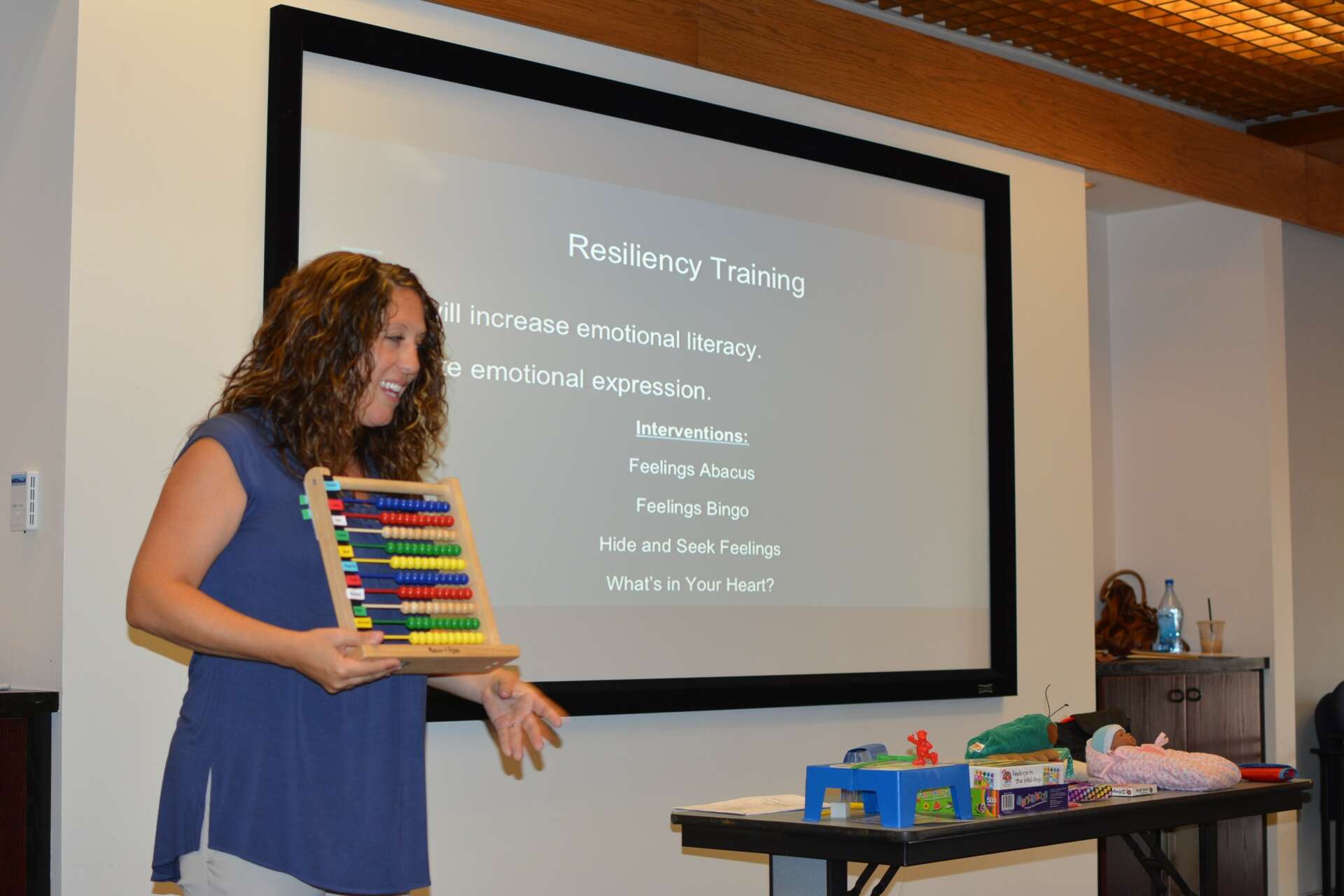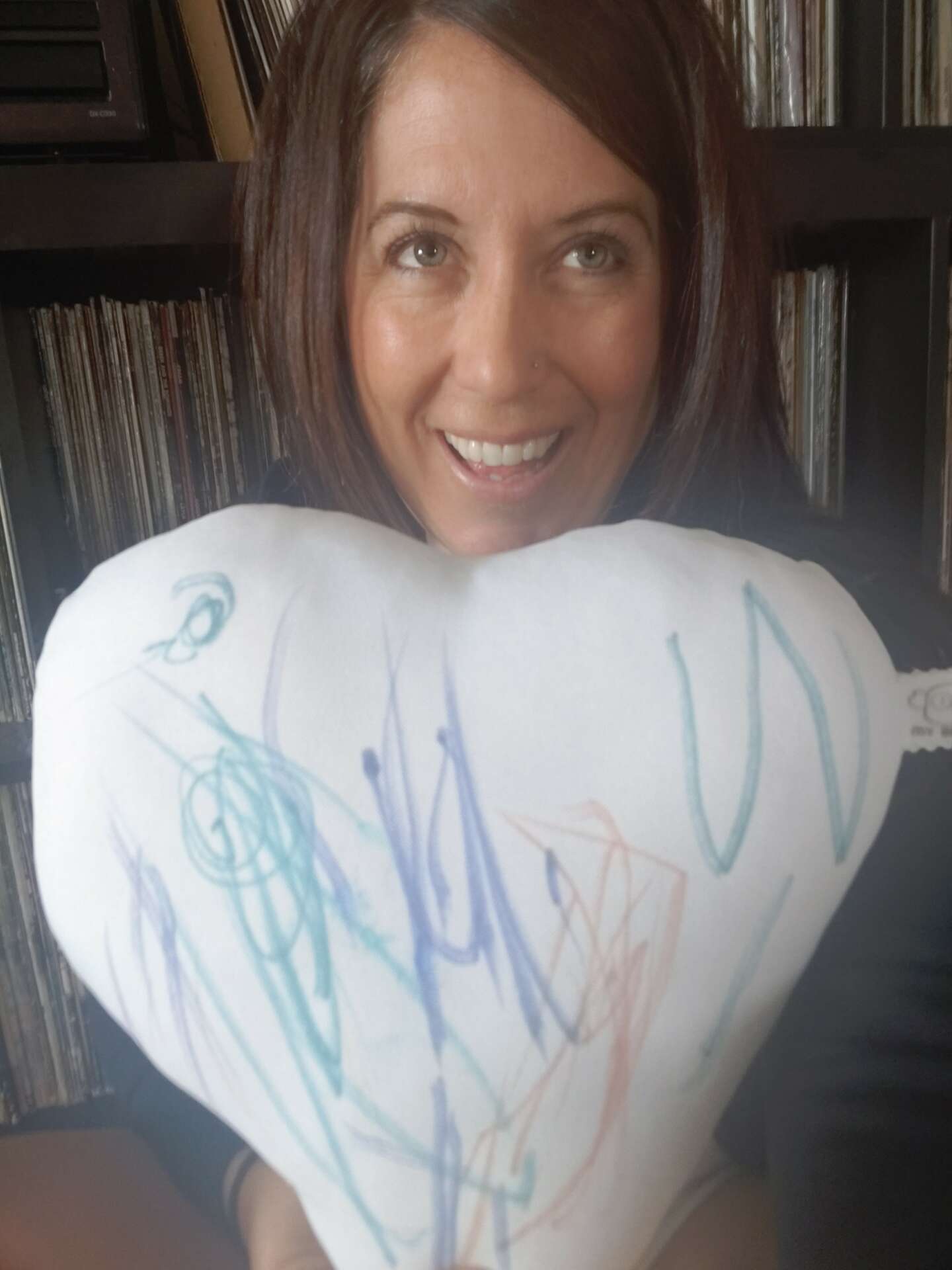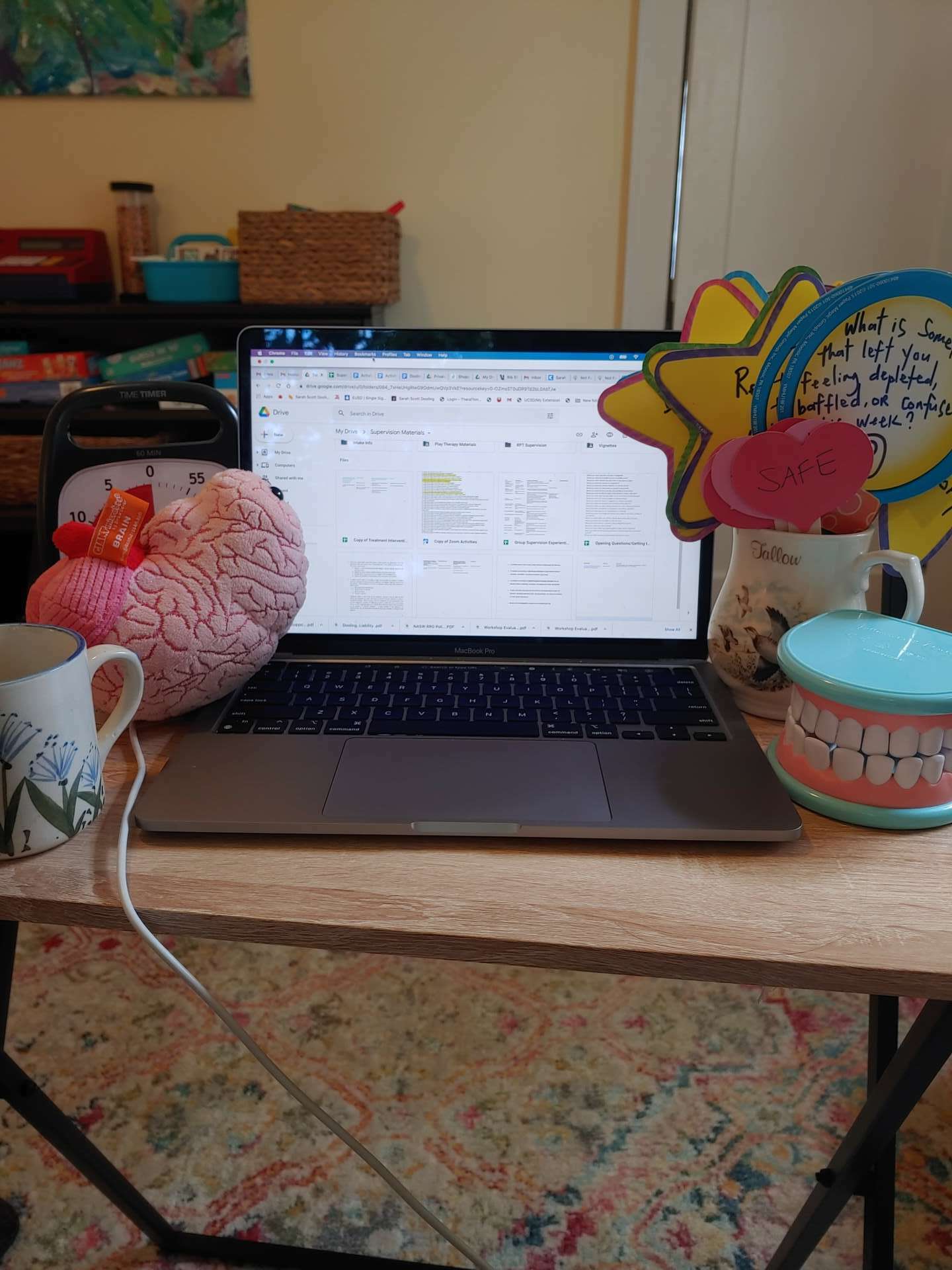We caught up with the brilliant and insightful Sarah Scott Dooling a few weeks ago and have shared our conversation below.
Sarah, appreciate you joining us today. We’d love to hear stories from your time in school/training/etc.
So I have this story I like to tell when I’m teaching Social Work Students. And I catch myself telling it over and over again in supervision sessions. I’m going to spare you all of the details (although, I think you would dig the specifics. It’s a pretty epic story). But basically, the story ends with me sitting on the carpet in a Kindergarten classroom with a bottle of glue dripping all over my hair and face.
A day in the life of a Social Worker, am I right?
That was a moment when I really wanted to fix things. I wanted to walk into the room, say exactly the right words, and convince that five year old to hand over the bottle of glue he was threatening his classmates with that morning. It didn’t go quite that way. And dang – I felt like a failure.
I was totally convinced that I needed to fix the situation, fix the student, fix the moment. Teachers, parents, and other stakeholders do want us to “fix” things (and as quickly as possible!).
It took me longer than I wish it had to understand that we join with children; we don’t fix problems. It seems so natural to people-please and try to “fix.” And then when we don’t “fix” the problem, we beat up on ourselves for failing. We are not in the “fixing” business; we are in the relationship business. So what does our job entail, especially during those moments when we enter a classroom or a home and things feel out of control? And there is an exasperated teacher or parent looking at you and saying “what do I do?!”
Try this. Remember your Code of Ethics, stay as calm and centered as possible, maintain safety as much as you’re able, and weather the storm.
Then later, when things aren’t quite so chaotic, you can revisit and reflect on the crises of the day. Then you can consult, make plans, and try to improve the situation and possibly develop interventions.
In those overwhelming moments, gently, lovingly, and assertively remind yourself that kids aren’t problems to be fixed. They are the humans we serve. And they need us to help them feel seen, heard, safe, and valued. All. The. Time.


Sarah, love having you share your insights with us. Before we ask you more questions, maybe you can take a moment to introduce yourself to our readers who might have missed our earlier conversations?
My therapy gig began right around my 10th birthday. I opened up a counseling office in the corner of the living room. My family would squeeze in behind the couch and dish about their thoughts and feelings. I was hooked.
Since then, I’ve formalized my work with the requisite education, licenses, and certifications. I maintain an active clinical license in California and Massachusetts. I’m also a Registered Play Therapist-Supervisor. Helping people who help kids is my favorite thing. Seriously – giving out doses of comfort, connection, kinship and resources to kid therapists nourishes me in all the best ways. I try my best to infuse play into all areas of my work – micro, mezzo and macro.
I’ve spent the last ten years working with the warmest, brightest, funniest, safest, most creative, collaborative, brilliant and EXHAUSTED kid therapists on the planet. They inspired me to create the Kinship Club, an online membership community where clinicians can learn and experience comfort, connection, and FUN.
I also created the Parenting Power Hour, a program that harnesses kid wisdom, explores the restorative powers of play, and offers doses of comfort and kinship to parents navigating life in the trenches.
Providing spaces for people who take care of kids to connect – with me and with each other – lights me UP. In addition to the Kinship Club and Parenting Power Hour, I offer supervision and consultation to child therapists; I also facilitate workshops for agencies and organizations. Each of my offerings is equal parts community and skill development, the perfect blend of what you need to take care of kids AND take care of yourself.
Any stories or insights that might help us understand how you’ve built such a strong reputation?
Every time I feel a kinship burst with someone I interact with in my professional world, I make every effort to stay connected. Sending a follow-up email letting them know what I learned from them, how grateful I am to have met them and so on. I really try to make this as authentic as possible. I’ve stayed connected with so many incredible humans who I’ve had the great fortune to connect with over the last decade – former students, professors, thought leaders on Instagram and on and on.
Also – I try my best to be really prompt with responding to emails and other inquiries!



Can you tell us about what’s worked well for you in terms of growing your clientele?
My experiences with moral distress and moral injury in the Social Work field have helped shape me to be the clinician and entrepreneur I am now. They also left me depleted, exhausted, and with a constant case of the existential blues. All week long Social Workers and other Helpers and Healers are advocating, empathizing, developing, defending, collaborating, consulting, crisis managing, cultivating safety, and so much more. It’s exhausting.
I really wanted to help! I try my best to give out doses of gratitude, comfort and connection whenever I can – whether I’m teaching, on a consultation call or responding to an initial inquiry about my services. My mission is to help people who help kids hone their craft, cultivate resilience, and reconnect with their purpose.
Remembering my own experiences with exhaustion and moral injury help me connect with my clients. I also think my openness to supporting and promoting other mental health entrepreneurs has helped me tremendously.
Contact Info:
- Website: https://sarahscottdooling.com/
- Instagram: https://www.instagram.com/healwithplay/
Image Credits
None


